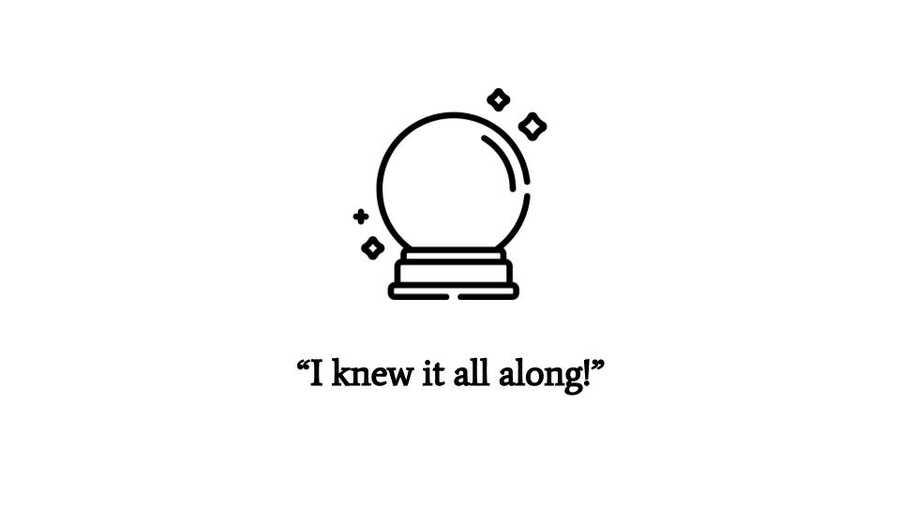The Hindsight Bias
A bias that many people including historians, experts and physicians encounter is the hindsight bias, which makes them think they knew how an event would turn out before it happened. It is the tendency for people to perceive past outcomes as having been more predictable than they actually were.
This phenomenon has been linked to distortion of memory, which unconsciously makes us understand the world based on our outlook.
128
799 reads
CURATED FROM
IDEAS CURATED BY
The idea is part of this collection:
Learn more about problemsolving with this collection
How to create a cosy and comfortable home environment
How to cultivate a sense of gratitude and contentment
The benefits of slowing down and enjoying simple pleasures
Related collections
Similar ideas to The Hindsight Bias
Hindsight Bias
Hindsight bias is a false belief that our judgement is better than it actually is when we look back and see the events. Reality appears more predictable after an event happens. This is also known as the ‘Knew-it-all-along effect’.
This bias makes people less accountable fo...
The many faces of the memory bias
- Rosy retrospection bias. We often remember the past as having been better than it really was.
- Consistency bias. We wrongly remember our past attitudes and behaviour as similar to our present attitudes and behaviour.
- Mood-congruent ...
Read & Learn
20x Faster
without
deepstash
with
deepstash
with
deepstash
Personalized microlearning
—
100+ Learning Journeys
—
Access to 200,000+ ideas
—
Access to the mobile app
—
Unlimited idea saving
—
—
Unlimited history
—
—
Unlimited listening to ideas
—
—
Downloading & offline access
—
—
Supercharge your mind with one idea per day
Enter your email and spend 1 minute every day to learn something new.
I agree to receive email updates
